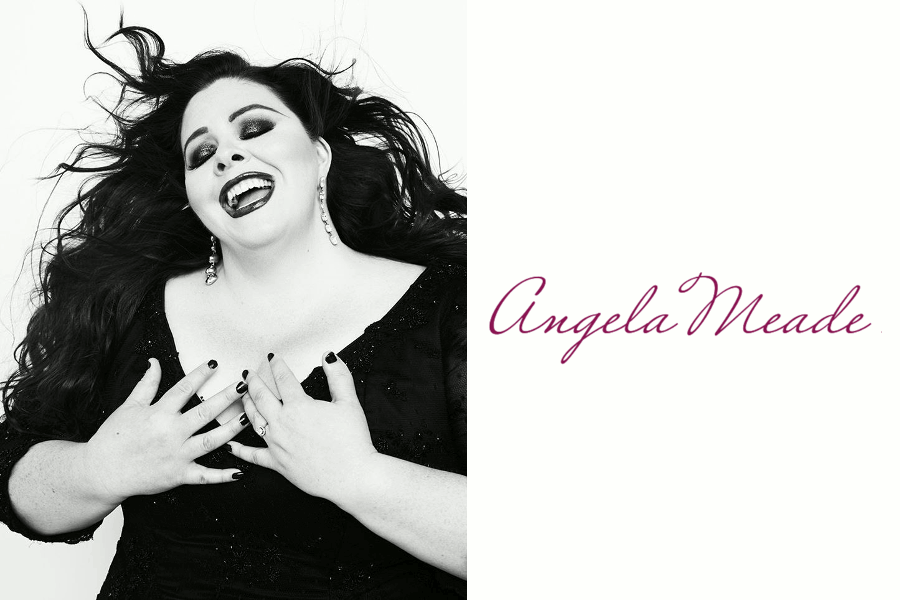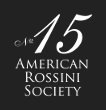Angela Meade talks Rossini

Angela Meade will be performing the title role in Rossini’s Ermione next month in Naples at the San Carlo opera house where it had its premiere. Her appearance at the Rossini Opera Festival this summer generated a lot of enthusiasm, and we are delighted that she was able to spend the time answering our questions.
You will be singing Ermione at San Carlo in Naples in November, quite an honor since it is the house where it was first performed. What are your feelings about this?
Ermione has become one of my favorite roles. It is an unbelievable honor to sing Ermione at Teatro di San Carlo in Naples where it was first performed, especially on the 200th anniversary of its premiere. Ermione was a role I dreamed about singing but since it is so obscure, I never thought it would happen. Maestro Zedda, of course, changed that for me when he hired me to sing it in A Coruña, Spain in 2015 and subsequently in Lyon, Moscow and Paris. I am so delighted that it has become such a prominent role in my career, and am excited to bring the character fully to life in a staged performance in Naples.
You have performed Ermione before under the guidance of the great Alberto Zedda. What was that experience like?
Maestro Zedda was a huge inspiration for me. I knew about him, of course, many years before we finally worked together. His dedication, love, and passion for Rossini was infectious. It was truly impactful to watch this tiny octogenarian so sprightly and full of vigor on the podium. His knowledge of Rossini style was profound and I am truly honored to have been able to learn from him.
Maestro Zedda was a huge inspiration for me. I knew about him, of course, many years before we finally worked together. His dedication, love, and passion for Rossini was infectious. It was truly impactful to watch this tiny octogenarian so sprightly and full of vigor on the podium. His knowledge of Rossini style was profound and I am truly honored to have been able to learn from him.
Your previous performances of Ermione were in concert form. The Naples performances will be staged. What opportunities does a stage performance present to you that are absent in the concert performances?
Of course, costumes and sets make the entire process more realistic to not only myself but for the audience. There are things one wouldn’t do in concert performances that one can more freely do in staged productions in regards to actions.
Are there other Rossini roles you would like to add to your repertory? You received such an enthusiastic reception at the Rossini Opera Festival last August so, hopefully, that experience will inspire you to pursue Rossini further.
I’ve had the pleasure of singing Semiramide, Guillaume Tell, Ermione and covering Armida at the Met. I would definitely be interested in exploring more Rossini roles, should the opportunities present themselves.
Having sung extensively in Europe as well as the U.S., what are the primary differences in terms of rehearsal time and company support between the two?
It varies from house to house really. I’ve had extensive rehearsal periods, even when it’s not a new production and I’ve also had rehearsal periods that last only a couple of days. Typically wherever you are, if you are in a new production, more rehearsal time is allotted for. A remount of a production is in general less rehearsal time, but that isn’t necessarily the case either. Typically rehearsals last from 5 days to 6 weeks.
You will be singing in La Pirata at Teatro Massimo in Palermo next season. While the opera was a major success when it premiered in 1827, it then waned in popularity. How would you compare singing a role in a relatively unknown work to singing in, say, Norma, which you have done to great success numerous times.
I’ve always had a passion for bringing unfamiliar operas and other works to the surface. I’m always curious when I’m preparing these works, why they have fallen into unfamiliar territory. Typically, you find that a composer’s earlier works are the ones that fall in obscurity because they are still figuring out who they are as composers and how to fully express what they want to say with the voice. A lot of the times the composer’s earlier works are more difficult to sing than the later works.
Photo credit: Ruven Afanador
